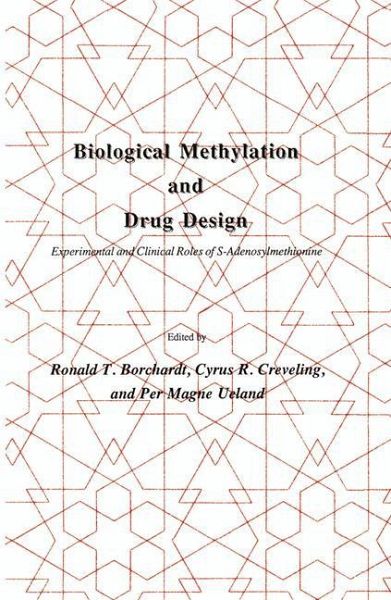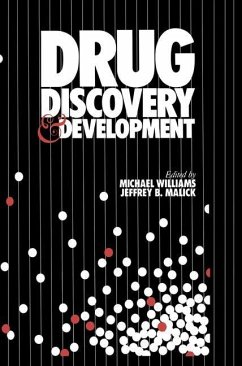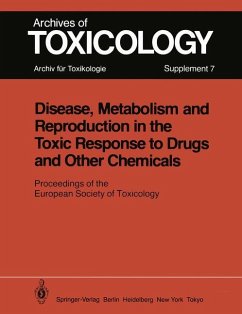
Biological Methylation and Drug Design
Experimental and Clinical Role of S-Adenosylmethionine

PAYBACK Punkte
77 °P sammeln!
This book has been developed from its earlier and far less formal presentment as the proceedings of a symposium entitled The Biochemistry of S-Adenosylmethionine as a Basis for Drug Design that was held at the Solstrand Fjord Hotel in Bergen, Norway on June 30-July 4, 1985. The purpose of the symposium was to bring together scientists from various disciplines (biochemistry, pharmacology, virology, immunology, chemistry, medicine, and so on) to discuss the recent advances that have been made in our understanding of the biological roles of S adenosylmethionine (AdoMet) and to discuss the feasibi...
This book has been developed from its earlier and far less formal presentment as the proceedings of a symposium entitled The Biochemistry of S-Adenosylmethionine as a Basis for Drug Design that was held at the Solstrand Fjord Hotel in Bergen, Norway on June 30-July 4, 1985. The purpose of the symposium was to bring together scientists from various disciplines (biochemistry, pharmacology, virology, immunology, chemistry, medicine, and so on) to discuss the recent advances that have been made in our understanding of the biological roles of S adenosylmethionine (AdoMet) and to discuss the feasibility of utilizing AdoMet-dependent enzymes as targets for drug design. Thus the information provided herein will be of value not only to basic scientists involved in elucidating the role of AdoMet in biology, but also to medicinal chemists who are using this basic knowledge in the process of drug design. The volume should also be of interest to pharmacologists and clinicians involved in biological evaluation of potential therapeutic agents arising from the efforts of the biochemists and medicinal chemists. Each plenary speaker at the symposium was requested to submit a chapter reviewing recent contributions of their discipline to our base of knowledge about the biological role of AdoMet. Topics covered in this volume include protein and phospholipid methylations (Section A), nucleic acid methyl ations (Section B), the regulation of AdoMet, S-adenosylhomocysteine, and methylthioadenosine metabolism (Section C), clinical aspects of AdoMet (Section D), and the design, synthesis, and biological evaluation of trans methylation inhibitors (Section E).












